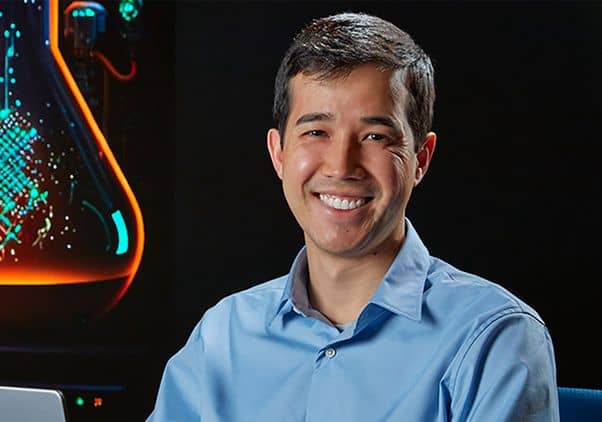Yuzhang Li, an assistant professor of chemical and biomolecular engineering at the UCLA Samueli School of Engineering, has received a pair of early career awards in recognition of his work, accompanied by a joint total of $1.76 million in grants over the next three years.
Li on Oct. 8 received the 2024 National Institutes of Health Director’s New Innovator Award. The award includes an initial three-year, $1.4 million grant to support Li’s research into electrified cryogenic electron microscopy, a new technique developed by his lab, the Li Group at UCLA.
The technique covers a gap between current microscopic imaging techniques and enables a high-resolution molecular-level view of instantaneous biological events, such as a neuron firing. This emerging method could shed new light on biological systems in states away from equilibrium — a previously unexplored area of study.
With new insights gleaned from this technique, Li anticipates applications in neurostimulation treatments, which could help patients suffering from neurological diseases. The technique could help study a range of electrically based biological systems, including muscle cells and heart cells.
Over the summer, Li received an Army Research Office Young Investigator Award for his work developing “beyond-lithium” battery technologies based on magnesium or aluminum. The award includes a three-year, $360,000 grant to fund his research.
A faculty member at UCLA Samueli since 2020, Li researches state-of-the-art experimental tools and engineering methodologies for electrochemical systems with the aim of developing new electrochemical systems that will play a major role in renewable energy, sustainability and addressing global climate change.
His research interests include using cryogenic electron microscopy to design next-generation batteries, as well as utilizing nanomaterials for carbon capture. The Li Group at UCLA has made significant contributions to uncovering key discoveries for next-generation batteries and solar cells.

